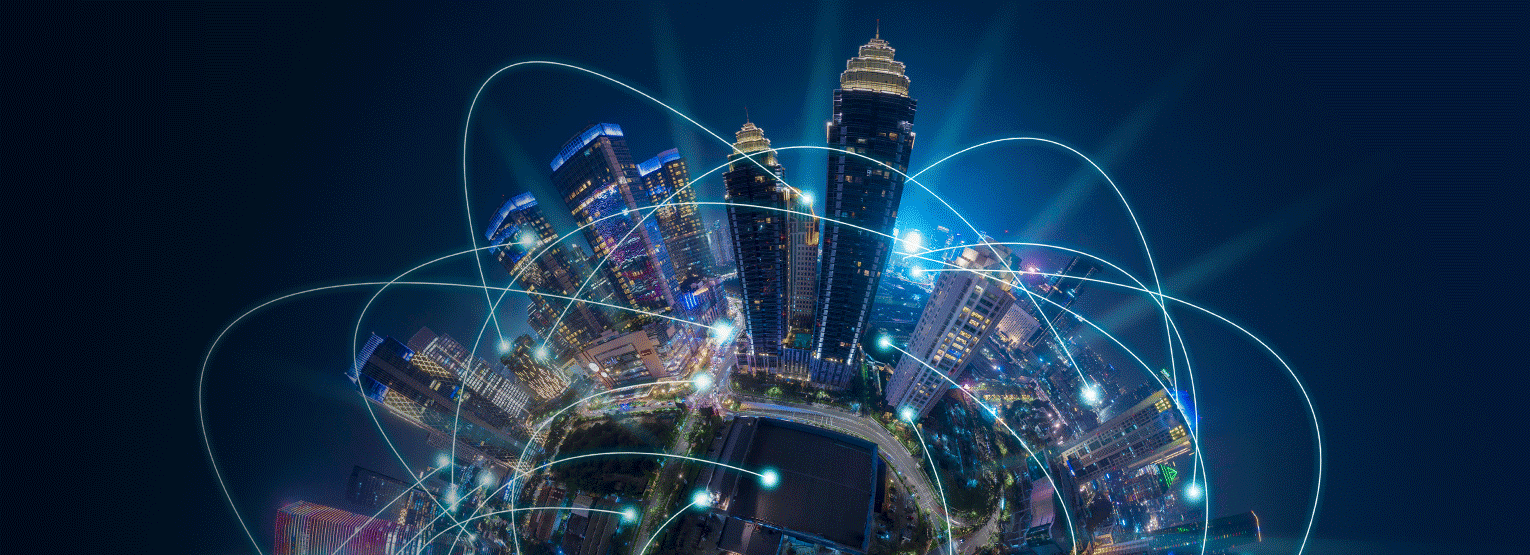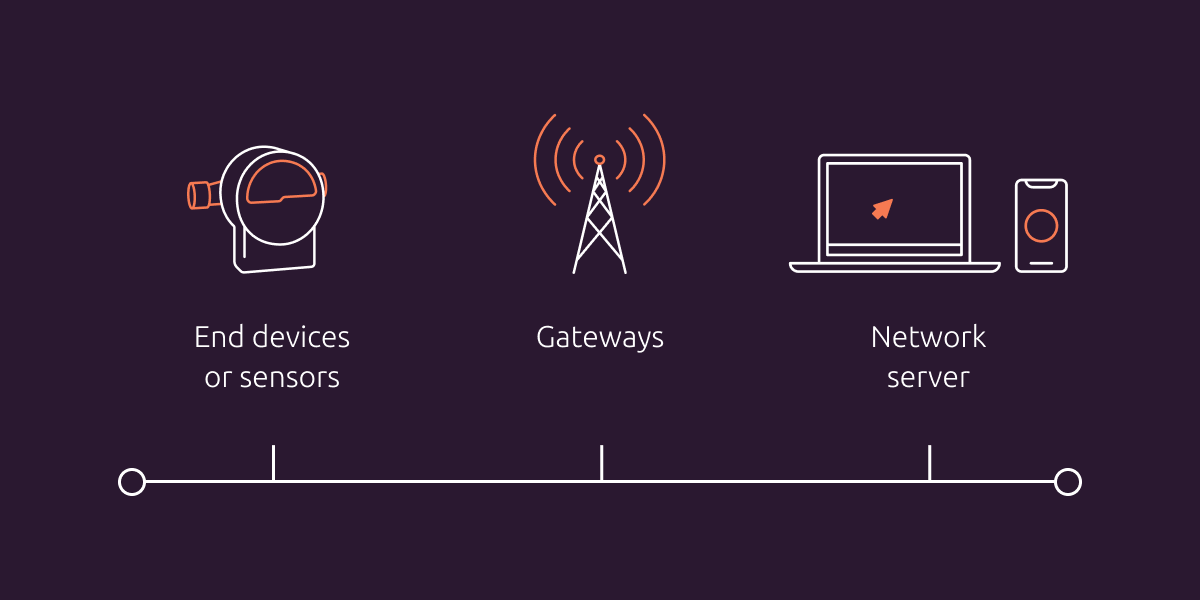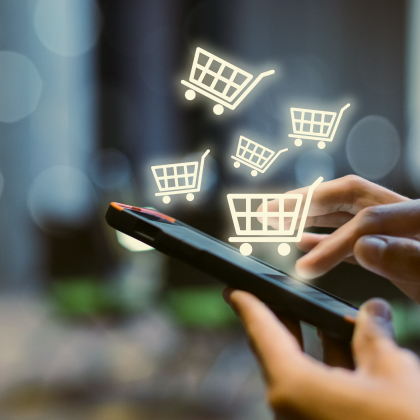Smart City - Blog - How LoRa technology works and the role it plays in enabling smart cities
26.06.2023
 4346
4346

How LoRa technology works and the role it plays in enabling smart cities

In the rapidly evolving landscape of high technology, the concept of smart cities has come to fruition. These cities harness digital smart grids to enhance the efficiency, sustainability, and overall quality of urban infrastructure, while prioritizing the well-being and comfort of their residents.
At the heart of these sophisticated systems and smart city solutions lies LoRa (Long Range) technology—a wireless communication protocol that powers global networks of the Internet of Things (IoT). This article delves into the fundamental principles of LoRa technology, explores its practical applications, and highlights its pivotal role in shaping the future of smart cities.
LoRa technologies are based on the utilization of the LoRaWAN (Long Range Wide Area Network) protocol. Operating on unlicensed radio bands designated for industry, science, and medicine, LoRaWAN offers long-distance, low-power communication capabilities, making it an optimal choice for IoT enabled smart cities.
The architecture of the LoRaWAN network comprises three key components:
End devices equipped with LoRa transceivers are usable for transmitting data to nearby gateways. These gateways receive the signals and forward them to the network server, which acts as the central node responsible for network management and data processing.

LoRa technology offers several advantages that make it suitable for implementing smart city projects. One of its primary benefits is its extensive range, spanning from 5 to 15 kilometers. The protocols employed by LoRa enable uninterrupted communication, even in areas with limited network infrastructure.
Operating in the sub-GHz frequency range, LoRa ensures excellent signal penetration through buildings and urban environments. This capability enables the signal to overcome physical obstacles and maintain a reliable connection in challenging settings.
Furthermore, LoRa technology excels in low power consumption. IoT devices powered by batteries can operate for 10–15 years without requiring battery replacement or recharging. This exceptional longevity reduces maintenance costs and logistical complexities.
To achieve energy efficiency, LoRa employs adaptive data rate methods. Devices autonomously adjust data transfer parameters based on the distance to the gateway and the desired quality of service. This approach optimizes device power consumption while upholding communication channel reliability.
By integrating LoRa technology in urban infrastructure, you open up an array of possibilities for implementing diverse smart city projects. These projects are designed to enhance resource management, expand public and commercial services, and facilitate urban infrastructure optimization. Let’s delve into the key industries where LoRa technology in urban planning plays a significant role.
LoRa-enabled smart meters facilitate remote monitoring and management of utility services. These devices enable the tracking of electricity, water, heat, and gas consumption. Smart meters, or radio modules for conventional meters, transmit real-time consumption data. This allows utilities to promptly collect service fees, optimize resource allocation, detect leaks, and quickly address accidents.
LoRa’s extensive range and low power consumption make it the ideal solution for large-scale deployment of smart metering systems.
By setting up a network of LoRa sensors, comprehensive city environmental monitoring becomes achievable. Sensor networks in smart city applications can monitor various parameters, such as air quality, noise levels, and the presence of harmful substances in the atmosphere. The use of city data analytics then assists authorities in identifying pollution sources, implementing targeted measures, and creating a healthier living environment for residents.
Sustainable cities powered by LoRa are now leveraging its extensive coverage capabilities, enabling municipalities to undertake comprehensive environmental monitoring without the need for complex infrastructure deployment.
Effective management of parking spaces is a pressing issue in densely populated cities. However, by leveraging the power of LoRa technology, smart parking systems offer a viable solution for residents. With the implementation of these systems, drivers can seamlessly access real-time information about available parking spaces through mobile apps. As a result, traffic congestion on city streets can be reduced, vastly improving the overall parking experience for both residents and visitors.
In addition to smart parking, LoRa-based solutions also enable efficient asset tracking. This technology means that cities can monitor the whereabouts and condition of valuable assets such as vehicles, equipment, and infrastructure.
By capitalizing on real-time tracking capabilities, cities can optimize asset utilization and enhance maintenance schedules. This ensures a more effective allocation of resources, improves operational efficiency, and results in substantial cost savings for the municipal budget.
LoRa technologies offer an end-to-end solution that meets the demands of smart cities, unlocking the full potential of the Internet of Things (IoT). With its remarkable versatility, scalability, and energy efficiency, LoRa technology plays a crucial role in shaping the future of urban environments. By adopting LoRaWAN for smart cities, you can establish sustainable and technologically advanced infrastructures that prioritize comfort and quality of life for their residents.
Stay on top of the latest industry news
Thank you, we have received your message. Our manager will contact you shortly.

Our experts are always happy to help and promptly answer your questions. Please fill out the form to discuss your project and develop a tailored action plan.
Thank you, we have received your message. Our manager will contact you shortly.
Thank you, we have accepted your request. In the near future the responsible manager will contact you and clarify the details of the order.
Our experts are always happy to help and promptly answer your questions. Please fill out the form to discuss your project and develop a tailored action plan.
Thank you, we have received your message. Our manager will contact you shortly.